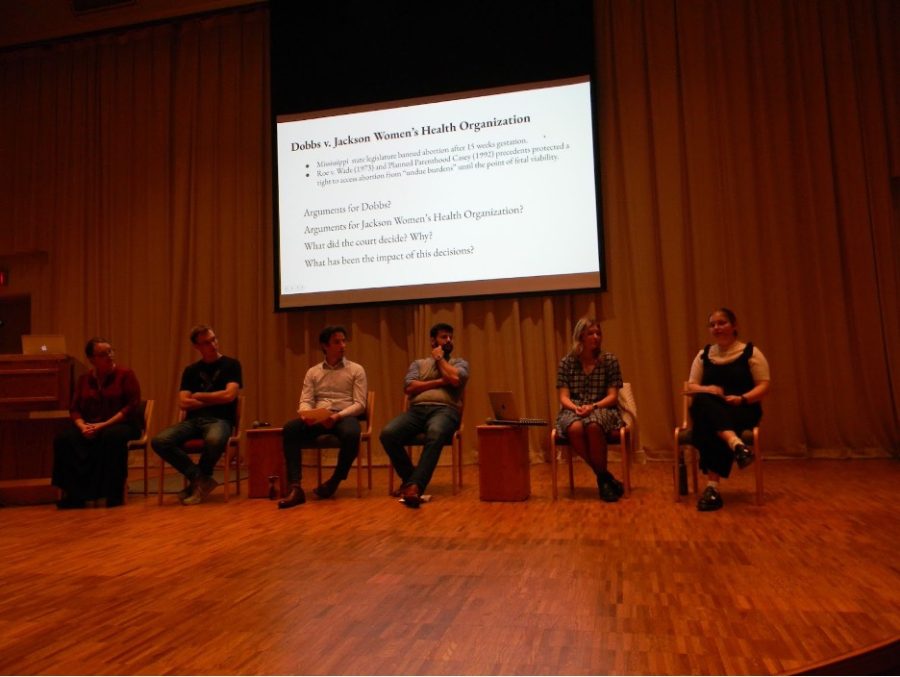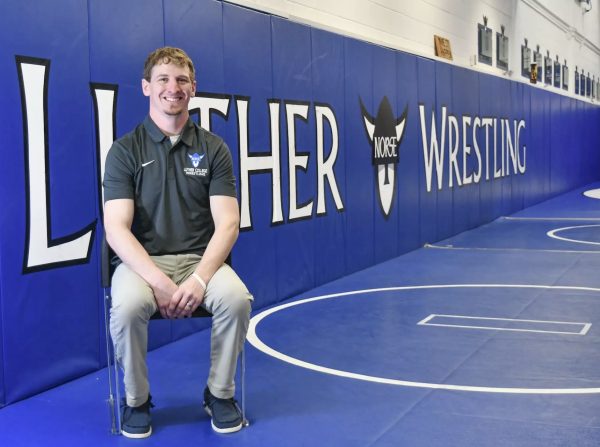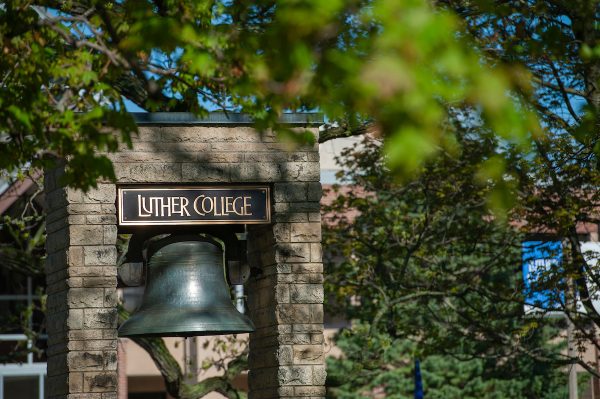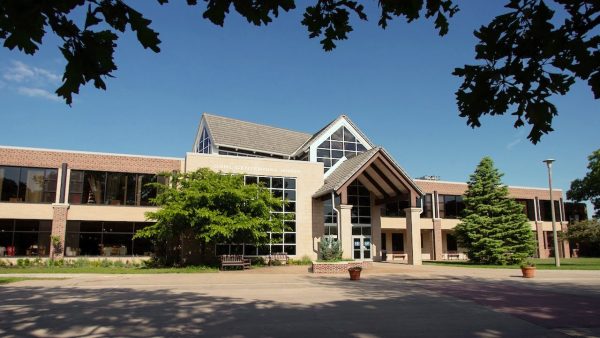Luther Hosts Roundtable on Understanding the U.S. Supreme Court Dobbs Decision
Professor of Political Science Carly Hayden Foster, Will Tuchtenhagen (‘23), August Halverson (‘23), Ben Houri (‘23), Julia Schleicher (‘23), and Emily Kane (‘24) discussed the recent Supreme Court decision in Dobbs v. Jackson Women’s Health Organization that overturned Roe v. Wade. Photo courtesy of Isabelle Pippert (‘23).
On Thursday, November 3, Professor of Political Science Carly Hayden Foster and student presenters from her constitutional law class explained the recent Supreme Court decision in Dobbs v. Jackson Women’s Health Organization that overturned the 1973 Roe v. Wade precedent on abortion. The roundtable, entitled “Understanding the US Supreme Court Dobbs Decision,” was held to help the audience understand and obtain a critical and ethical understanding of key legal concepts, personnel changes on the Supreme Court and a number of significant cases from last year. The event was sponsored by the Center for Ethics and Public Engagement (CEPE).
In the first part of the talk, Ben Houri (‘23) discussed the arguments of Thomas E. Dobbs, the State Health Officer of the Mississippi Department of Health who brought the petition to the court, as well as Houri’s personal thoughts on the arguments.
“I think there was actually a lot of miscommunication of the oral arguments presented in this case,” Houri said. “People kind of expected the petitioners [to have] some new scientific data. The basis for why you would overturn Roe would be on the basis of new information.”
This was just one of the many points brought up by the student presenters with the goal of explaining the process of arguing at the Supreme Court, and the impact the decisions in certain cases can have. In presenting their information, all students talked about the complexities in decisions of the Supreme Court.
Foster facilitated the forum and wanted the talk to have a positive effect on those students as well as the audience. Foster also wanted to make her students more comfortable speaking in front of crowds.
“[The students] really did a good job,” Foster said. “[They] worked hard to prepare themselves so they all knew what they were talking about when the time came.”
Associate Professor of English and Director of CEPE Andy Hageman was excited to learn about this case from the point of view of the Luther community. Hageman noted how impactful these events can be for Luther students and teachers, especially for a case as wide-reaching as the Dobbs decision.
“This [roundtable] is a really good chance to have a political science professor and some students talk about understanding key concepts about the Supreme Court, because we hear so much about it in the news,” Hageman said. “Getting to hear from faculty and students [as] an understanding approach to the Dobbs case is super productive.”
Julia Schelicher (‘23) and Emily Kane (‘24) ended the talk by speaking about the arguments for Jackson Women’s Health Organization, the last clinic in Mississippi that provided abortions. They discussed how the legal issues involved in this case surrounded the interpretation of the 14th Amendment, common law, and the due process clause. Both Schelicher and Kane then gave their own opinions on the impact of the court’s decision, and the irony they saw in the arguments made.
“It is asserted in legal precedent that physical autonomy and bodily integrity are really essential elements of liberty and those are therefore protected by the due process clause,” Schleicher said. “There really is no freedom without bodily autonomy.”






